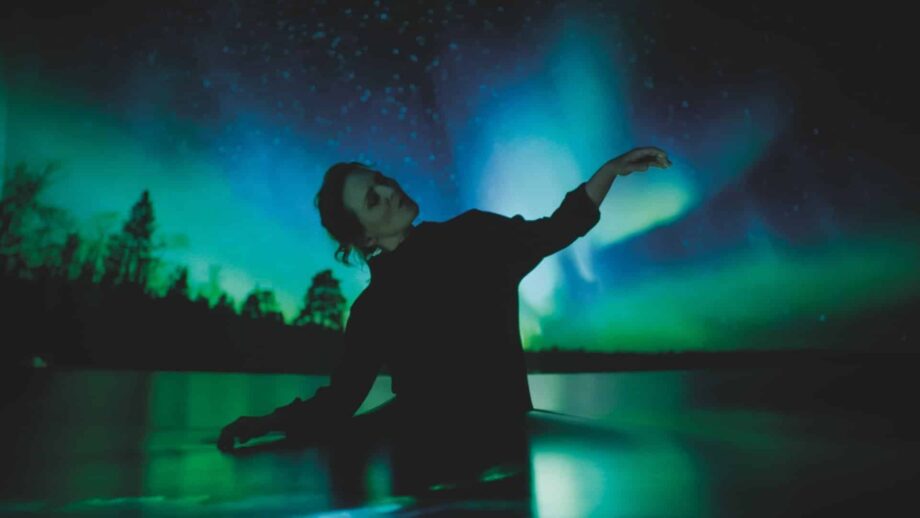




Dirs:: Iain Forsyth and Jane Pollard | UK Doc 2024
Review by Peter Herbert
Letters rediscovered, lost and found, or never sent can make for fantastic and inspired creativity of which Max Ophul’s Letter From An Unknown Woman and Mikhail Kalatozov’s The Letter that Was Not Sent spring to mind.
A British Avant Garde and experimental independent film The Extraordinary Miss Flower, made by filmmakers Iain Forsyth and Jane Pollard, adds an enchanting new chapter to a treasure trove of the arts which delights in the opening up of letters to reveal the identity and private thoughts of those no longer with us. While tracing influences of the past on the present, films such as these can allow a viewer to reflect and think about life in new ways, which applies to this delightfully non-mainstream and enjoyable dream of a film.
The opening source of the film, set to the ticks of a metronome, is a case of letters found after the death of a woman in 2018 by her daughter. The letters belonged to Geraldine Flower, an English woman who was born in Manchester in 1947 and subsequently, as a young woman in her twenties, moved to Sydney, Australia. She appears to have lived in both countries.
Through the enthusiastic enactment of letters by Caroline Catz, as Geraldine, we discover little about her public life, which remains enigmatic. There is far more about her inner thoughts, creative dreams and feelings about love, life and her polyamorous sex life which reveals the heart and spirit of a young woman tasting the rich fresh fruits of the post 1968 early 70s era of social, sexual and political change.
The letters are mostly written for – or by – Geraldine and form the film’s driving female energy. Her words are seen, sung or spoken while linked to an overlaid performance of dance and song by a group of female dancers and musicians acting out elements of her life. The rich mix of image, sound and word contains poignant detail including the posting of letters at the 24-hour post office in London’s Trafalgar Square, references to stamps licked onto envelopes, ink written rather than biro handwriting, and at least one mention of Telex as an early form of technology that would soon replace letter writing as the key form of communication.
Cinema marquees of films in Piccadilly Circus include Across 110 Street, dating the image as both time and place in 1972. Men, including lovers, are largely peripheral except for letters related to official matters including rent, tax and libraries.
Thematically the film has a curious link to Carol Morley’s Dreams of a Life which also pieced together the mystery of a dead unknown woman. Visually the filmmakers have fashioned out of music and dance fronted by Icelandic singer Emiliana Torrini, a form of musical performance documentary overlaid by a sense of free-flowing stream of consciousness.
Aesthetically, the film contains monologues spoken by male artists including Richard Ayoade, Mark Moreno and a gutsy Nick Cave that are all shot in black and white which feels surreal alongside colour footage of an almost entirely female centric world. As regards set design, the film creates an imaginary boat out of paper, at sea in a studio setting of dreamy artificial theatricality with other narrative links linked into movable cardboard cut-out frames.
For a short 73-minute film The Extraordinary Miss Flower is extremely dense as it weaves its tangle of threads in and out of a traveller’s case. There remains an enigma posed by the film which appears to be happily addressed by the filmmakers. As we are left with the feeling that we may still never really know the full story of Geraldine Flower, there is joy and love to be found in the art of filmmakers creating an imagined or real sense of the identity of another person’s life. Love itself may be the real answer as the film becomes another form of beautiful love letter written to a woman no longer with us, linked to a case that may have remained sealed, never to see the light of day again. Peter Herbert
IN CINEMAS FROM 9 MAY 2025